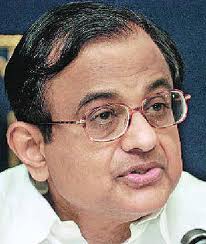New Delhi, Mar 5: In a stout defence of his Budget proposals, Finance Minister P. Chidambaram on Monday declared that there was nothing that could stop India from becoming the third largest economy in the world.
In his maiden interaction with netizens on Google Hangout — the first time that any Union Cabinet Minister has done so — thereby joining the league of personalities such as U.S. President Barack Obama to reach out to the people, Mr. Chidambaram, at almost the fag end of the hangout, said: “There is nothing that can stop India from becoming the third largest economy in the world. We will be there along with U.S. and China. We have everything to get there, but won’t get there till we work hard and respect the laws of economics.”
And in this regard, as if almost thinking aloud, the Finance Minister said: “We don’t have the space to do anything foolish or anything irrational. We have to ensure everybody delivers the outcome he or she is expected to. Why should it take five years to build a 1,000 km stretch of road; why should it take six years to build a power plant? Each one has to work forward for India to achieve its rightful place globally.”
Explaining the economic rationale of his Budget proposals, Mr. Chidambaram noted that his job was to look after the vast middle class, and just not the upper middle class. “In metros, while costs are rising, so are incomes. But look at the farmer, income in rural parts not rising at the same rate as in metros. Same goes for those in casual jobs. We are not a country with only the middle class. We have to tax someone to raise revenues to meet broader objectives,” he said.
Rebutting some of the post-Budget criticism over his tax proposals, the Finance Minister pointed out that since millions of Indians are still poor, some tax will have to be collected. “If you are buying a mobile phone worth Rs. 6,000, there is nothing wrong being prepared to pay Rs. 300 more. Same goes for eating out in air-conditioned joints,” he said.
On the issue of the high Current Account Deficit (CAD), Mr. Chidambaram pointed out that growing exports was the only way out of the CAD problem. “We have many economic zones, but companies have to come up and set up units in those zones. Companies are sitting on piles of cash. I will meet individual business houses to know their capex plans. We will do everything to boost manufacturing.”
He also reiterated that much of the problem was on account of rising imports of gold. “There are many imports that India cannot do without. But one import that India can do without is gold. If we do not import gold for a year, current account will come down by half,” he said.
In response to the active participation by the youth in his Budget analysis, Mr. Chidambaram said the younger generation was much more informed and knowledgeable and saw a great future for internet in India. “We will need to strengthen broadband connectivity across the country. We may even see a virtual political party in India, with virtual members,” he said.





Comments
Add new comment